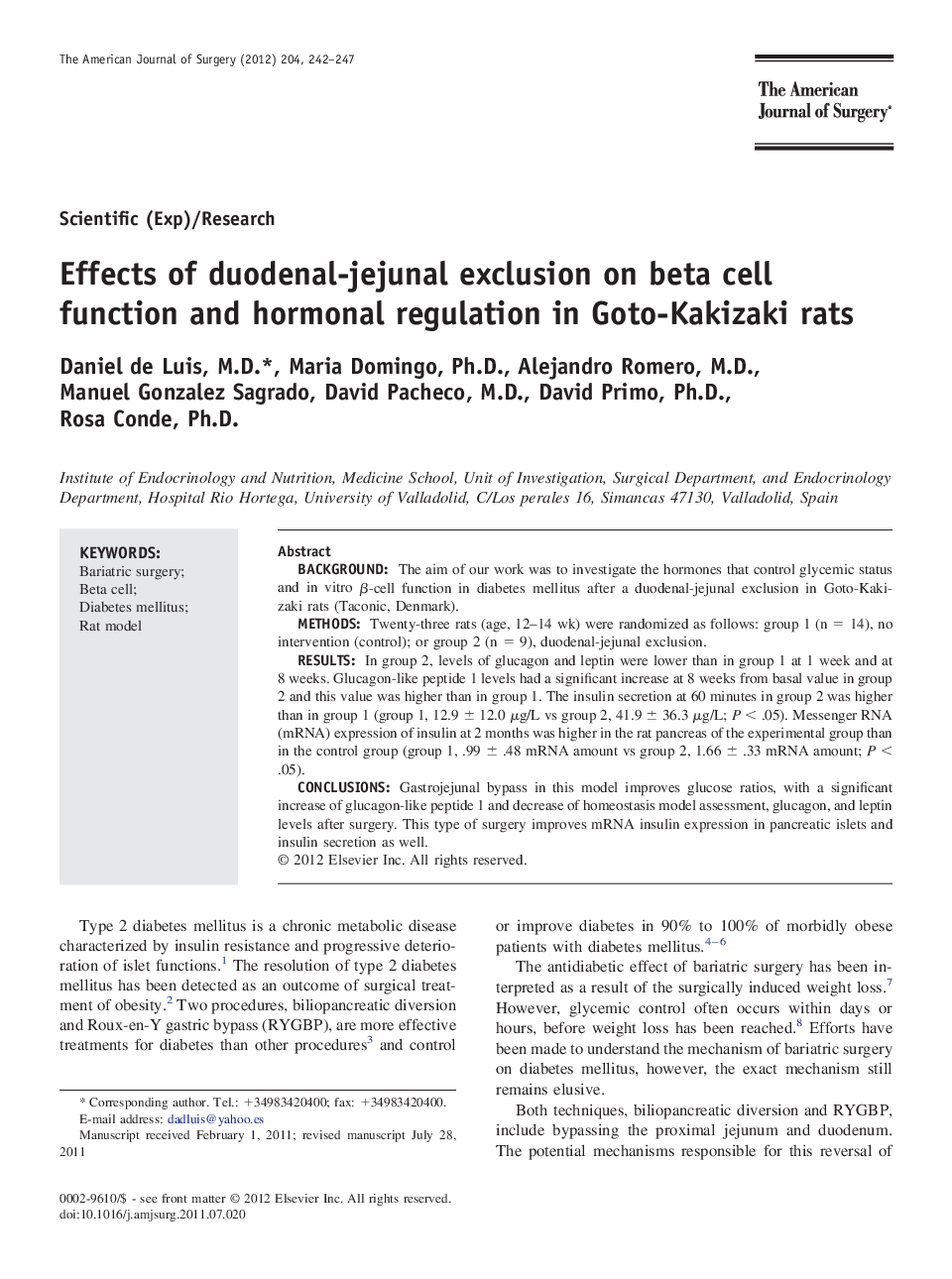| Article ID | Journal | Published Year | Pages | File Type |
|---|---|---|---|---|
| 4279560 | The American Journal of Surgery | 2012 | 6 Pages |
BackgroundThe aim of our work was to investigate the hormones that control glycemic status and in vitro β-cell function in diabetes mellitus after a duodenal-jejunal exclusion in Goto-Kakizaki rats (Taconic, Denmark).MethodsTwenty-three rats (age, 12–14 wk) were randomized as follows: group 1 (n = 14), no intervention (control); or group 2 (n = 9), duodenal-jejunal exclusion.ResultsIn group 2, levels of glucagon and leptin were lower than in group 1 at 1 week and at 8 weeks. Glucagon-like peptide 1 levels had a significant increase at 8 weeks from basal value in group 2 and this value was higher than in group 1. The insulin secretion at 60 minutes in group 2 was higher than in group 1 (group 1, 12.9 ± 12.0 μg/L vs group 2, 41.9 ± 36.3 μg/L; P < .05). Messenger RNA (mRNA) expression of insulin at 2 months was higher in the rat pancreas of the experimental group than in the control group (group 1, .99 ± .48 mRNA amount vs group 2, 1.66 ± .33 mRNA amount; P < .05).ConclusionsGastrojejunal bypass in this model improves glucose ratios, with a significant increase of glucagon-like peptide 1 and decrease of homeostasis model assessment, glucagon, and leptin levels after surgery. This type of surgery improves mRNA insulin expression in pancreatic islets and insulin secretion as well.
